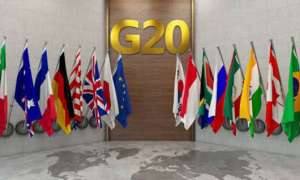
India’s hosting of the G20 summit is a significant opportunity for the country to assert its global leadership and address global issues. However, The controversies surrounding the event, such as the displacement of slum dwellers and the government’s overshadowing political branding, raise concerns about the true intentions and Impact of the summit.
Addressing climate change, geopolitical divisions, and the treatment of minorities is crucial for a productive and inclusive summit that reflects the true spirit of international cooperation. The significance of India hosting the G20 summit, the controversies surrounding it, and the impact it may have on India’s geopolitical clout
India’s Rise in Global Influence
India’s hosting of the G20 summit comes at a time when the country is asserting itself as a rising geopolitical and economic force. With a growing economy and increasing global partnerships, India is being courted by various powers and positioning itself as a leader and example for developing nations. Prime Minister Narendra Modi has seized on the G20 presidency as a validation of India’s ascent, intertwining it with his image as he seeks a third term in the upcoming elections.
The controversial “Beautification Drive”
Amidst the preparations for the G20 summit, India has undergone a massive and controversial “beautification drive. Slums have been bulldozed and their occupants displaced, raising concerns about the treatment of the poor and marginalized. The city has been adorned with billboards featuring Modi’s face and lotus flower murals, the symbol of his ruling Bharatiya Janata Party (BJP). This overt display of political branding has raised eyebrows and led to accusations that the ruling party is overshadowing the government of India.
Modifying the G20 Narrative: A Vanity Event for Modi?
Critics argue that the G20 summit has become a vanity event for Modi, providing him with an opportunity to showcase himself as a statesman before the upcoming elections. The extensive advertising and public relations campaign surrounding the event, with Modi’s image prominently displayed, suggests a deliberate effort to capitalize on the moment and project a narrative of India’s global prominence. However, this focus on Modi’s persona raises questions about the true purpose of the summit and whether it serves the interests of the Indian people or merely the ruling party.
Climate Change and the Impact on G20 Hosts
The G20 summit comes at a time when the world is grappling with the effects of climate change. Recent studies have shown that climate change has intensified wildfires in Canada and Greece, causing significant loss of life and property damage. These devastating events highlight the urgent need to address climate change on a global scale. As India hosts the G20 summit, it has an opportunity to address climate change and promote sustainable practices, showcasing its commitment to mitigating the effects of global warming.
India’s Geopolitical Agenda: The G20 as a Platform for Influence
India’s hosting of the G20 summit provides a platform for the country to assert its geopolitical influence and advocate for the interests of developing nations. Prime Minister Modi has been vocal about the need to reform global multilateral institutions to give developing countries a greater say. By bringing together leaders from the world’s largest economies, India aims to facilitate dialogue between the global north and south, addressing critical global issues such as debt restructuring, commodity price shocks, and the transition to renewable energy.
Challenges and divisions within the G20
The G20 summit faces significant challenges and divisions among its member nations. Disagreements over issues such as Russia’s war in Ukraine, the phasing out of fossil fuels, and trade tensions between China and the United States make it difficult to reach meaningful agreements. The absence of Chinese leader Xi Jinping and Russia’s Vladimir Putin further complicates the negotiations. India’s role as the host country requires navigating these divisions and fostering productive discussions to achieve tangible outcomes.
The G20’s Impact on India’s Domestic Politics
Hosting the G20 summit provides an opportunity for Prime Minister Modi to bolster his political image and appeal to the electorate ahead of the upcoming elections. Presenting India as a key player on the global stage, Modi seeks to capitalize on the perception that India has arrived as a major player in international affairs. The success of the summit and India’s ability to influence global discussions will likely shape public opinion and contribute to Modi’s campaign narrative.






